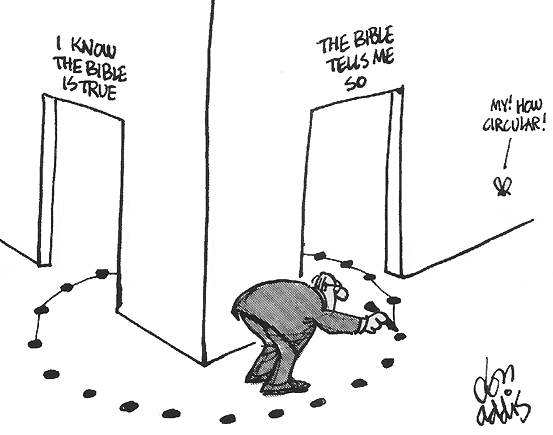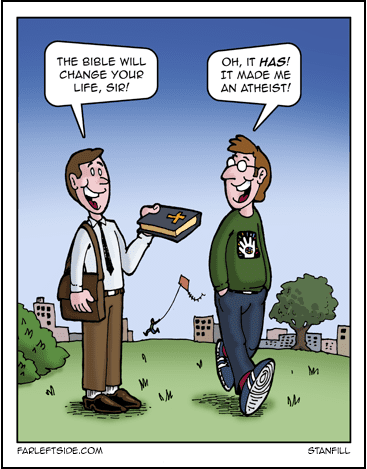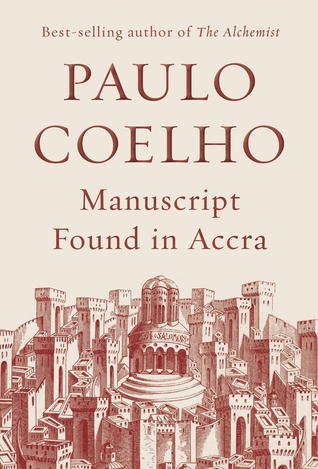
Repost from 2015. Extensively edited, rewritten, and corrected.
Two thousand years.
Two thousand years of Jesus.
Almost from the beginning, Christians put their oral traditions, teachings, and beliefs into writing. The Bibles used by twenty-first-century Christians all trace their authority back through history to Christian writings dating from around 50 CE forward. The original writings, the first edition writings do not exist and any claim of inspiration for the “original” writings is nothing more than wishful, fanciful thinking. Every claim ever made by the Christian church rests on the text of the Bible and how the church has interpreted that text. I am aware of the fact that the Christian church has been influenced by Gnosticism for most of its 2,000-year history, but for the most part, Christianity is a text-based religion that places the text of the Bible above personal experiences and revelations. Even when personal experiences and revelations are given greater weight and authority — as in Pentecostal and Charismatic churches — they are almost always expected to conform to what is found in the text of the Bible.
Most Christians believe the Bible is inspired by God. They believe the words of the Bible came from God or at least represent, in fallible human form, what God wants humankind to know about God, life, salvation, death, judgment, and the afterlife. Many Christians believe every word of the Bible is inspired by God, and some Christians even go so far as to say that a particular translation, the King James Version, is inspired by God. Christians who hold this extreme view believe that God has preserved his Word through time and that every word of the King James Bible is from the lips of God himself. And countless other Christians believe the text of the Bible is inerrant and infallible. Ponder that thought for a moment. Every word in a book thousands of years old is true, without error, and perfect in every way. To quote the Evangelical bumper sticker, “God said it, I believe it, and that settles it for me.” Some Evangelicals say, “God said it, and that settles it for me. It doesn’t matter whether I believe it or not!”
Most Christians believe the Bible is truth. While they may not believe ALL the Bible is truth, every Christian, at some point or the other, says THIS is truth. A person who does not believe the Bible is truth is not a Christian in any meaningful sense of the word. There is a form of Christianity floating about these days that suggests a person can be a Christian and not believe the Bible. This kind of Christian says “I’m spiritual, but not religious.” He embraces Jesus as his Savior and guide, but often has no connection with organized Christianity. However, even the “spiritual but not religious” Christians must, sooner or later, appeal to the Bible. Without the Bible, they would have no knowledge of Jesus, the locus of their faith.
Other Christians are what I call cafeteria Christians. They pick and choose what they want to believe. Most cafeteria Christians believe in Jesus since they DO want their sins forgiven and they DO want to go to Heaven when they die, but when it comes to the hard sayings of the Bible, the teachings that get in the way of the American dream and living the way they want to live, cafeteria Christians dismiss such sayings and teachings as old, outdated relics of the past that have no value or application today. Simply put, they want a Jesus divorced from anything else the Bible says. Cafeteria Christians become quite adept at explaining away anything in the Bible with which they disagree.
This brings me to the point of this post. Who determines what the Bible says? Who decides what this verse or that verse says? Who is the arbiter of truth? Who is the final authority?
Some Christians say GOD is the final authority. The Bible is God’s Word . . . THUS SAITH THE LORD! These well-meaning Christians think that the teachings of the Bible are clear and understandable, needing no explanation or interpretation. Why, then, do they go to church on Sundays and listen to men tell them what they think the Bible says? Why do they read books and commentaries written by people telling them what they think the Bible says? If the Bible is a self-attesting, self-explanatory text, why all the middlemen?
Some Christians say the HOLY SPIRIT is the final authority. God gave New Testament Christians (Old Testament believers only got a part-time Holy Ghost who came and went at will) the Holy Spirit to be their teacher and guide. Supposedly, the Holy Spirit teaches them everything necessary for life and godliness. It is not hard to see the Gnostic influence in this kind of thinking. If there is ONE Holy Spirit who teaches and guides every Christian, why is there no consensus among believers on what Christians believe or how they are supposed to live? Why does the Holy Spirit give contradictory instructions or lessons? Why are there so many Christian sects? Surely, if the Holy Spirit is on his game, every sect would believe the same thing, and they would become ONE body with ONE Lord, ONE faith, ONE baptism.
Some Christians are what I call red-letter Christians. They give weight and authority to the “words” of Jesus in the gospels, the words that are in red in many modern translations. With great passion and commitment, they attempt to walk in the steps of Jesus (WWJD). Unfortunately, they rarely consider whether the words attributed to Jesus in the gospels are actually his words. Jesus didn’t write any of the books found in the Bible, which, in my opinion, is quite odd. Most Biblical scholars question who actually wrote the gospels, and mainstream scholars have serious reservations over Matthew, Mark, Luke, or John being the authors of the gospels that bear their names. Since the gospels are, at best, stories passed down by those alive at the time of Christ and not put in written form until decades after the death of Jesus, the best a modern-day Christian can say about the gospels is that they are words written by an unknown people who recorded what a third, fourth, fifth or twentieth party told the writer Jesus said.

Claims that the Bible is some sort of inspired text require faith. There’s no evidence for the claim that the Bible is inspired outside of the text itself. Either you believe the Bible is, to some degree or the other, supernatural truth or you don’t. I am an atheist today primarily because I no longer believe the Bible is truth. While it is certainly a book filled with entertaining and thought-provoking stories, it is not, in any way, a supernatural text. While it certainly contains maxims worthy of emulation, it also contains God-approved behaviors that we moderns now consider at odds with human and scientific progress.
Every Christian belief rests not on God, Jesus, or the Holy Spirit, but on the authority of a human being or a group of human beings. It is humans who decide what the Bible says. It is humans who decide what this or that verse means. Whether it is a denomination, the Pope, theologians, a pastor, or an individual Christian, it is a human who is the final authority. At best, the only thing a Christian can claim is THUS SAITH THE POPE, MY DENOMINATION, MY PASTOR, MY COLLEGE PROFESSORS, OR MYSELF! Any claim that it is God speaking or leading is a matter of faith, a matter that cannot be proved empirically. In other words, you are just going to have to take their word for it — or not.
Christians need to get off their Bible High-Horse and admit who the real final authority is. The fact that there are thousands of Christian sects shows very clearly that humans are the ones with the final say on what the Bible does and doesn’t say. It is humans who preach, write books, teach theology classes, blog, and debate. God may have said a particular something — and there is no way for us to know if he did — but it is humans who get the final say about what God actually said or what he meant to say. Every Christian statement of belief is an interpretation of the Bible. It is that person or group saying, this is what the Bible says. In other words, the person is saying I know what God said. (One of the purposes of this blog is to demonstrate that the Bible can be made to say almost anything.)
Can you name one Christian teaching that ALL Christians agree upon? Outside of the fact that Jesus was a real person, every other teaching of the so-called “faith once delivered to the saints” is disputed by some Christian sect or the other. If the Christian church were a married couple, they would have long since been divorced for irreconcilable differences. Oh wait, that is exactly what has happened. The Christian church is hopelessly splintered into thousands of sects, each competing with the other for the title of God’s Truth Holder. Children in Evangelical Sunday schools learn to sing the B-I-B-L-E song. In light of what I have written above, the lyrics of the song should be changed:
The B-I-B-L-E, yes that MIGHT be the Book for me, I SOMETIMES stand alone on the WORDS OF MEN, the B-I-B-L-E. B-I-B-L-E!!
Until God shows up in person and says yes, I wrote this convoluted, contradictory book that makes me out to be a hateful, vindictive sadist, I am not going to believe the Bible is God’s Word. If a benevolent, loving God really wrote the Bible, do you think he would have written what Christians say he did? If God had control of the writing process, do you think he would have included his unsavory, immoral side? If God was involved in putting the Bible together, don’t you think he would have proofread it to make sure there were no mistakes and that the text was internally consistent?
Instead, Christians spend countless hours trying to harmonize (make it all fit) the text of the Bible. They put forth laughable explanations for the glaring errors found in the Bible. Well, you know Bruce, Jesus cleansed the Temple at the start of his ministry AND the end of his ministry! Sure he did. I wonder if Christians know how foolish some of their harmonizing attempts sound to those on the outside of the church or to someone like myself, who has been on both sides of the fence? Of course, according to the Bible, the various harmonization schemes sound foolish because non-Christians don’t have the Holy Spirit inside of them teaching them how to make square pegs fit in round holes. And round and round the merry-go-round goes.
If Christians want to believe the Bible is some sort of truth, and worship God/Jesus/Holy Spirit based on what is written within its pages, I have no beef with them. If they want to believe the Bible and its teachings, who am I to say they can’t? However, when they insist everyone acquiesce to their beliefs about the Bible and God, and that their peculiar belief system is the one true religion, then I have a problem. When Christians insist that the Bible and its teachings be taught to public school children or demand that their interpretations of the moral and ethical code taught in the Bible applies to everyone, they should expect pushback from people such as myself. Since history gives us ample warning about what happens when any religion gains the power of the state, secularists like myself will continue to fight any attempt to enshrine Christianity as the official state religion.
Here’s what I am saying to Christians. Take the Bible, go to your houses of worship, and believe and worship as you will. However, I expect you to keep your beliefs to yourself. If I don’t ask, you don’t tell. Stop all the theocratic, God-rule talk. Stop trying to turn the United States into a Christian nation. Stop demonizing everyone who disagrees with your beliefs. In other words, treat others with decency, love, and respect. Stop being a religious fanatic who thinks everyone should hear about your version of the Christian God and embrace your peculiar beliefs.
Do you think American Christians, especially conservative Catholics and Protestants, Mormons, and Evangelical Christians, can do what I mentioned above? Not a chance! They will continue to push, fight, and infiltrate until they have no more soldiers to fight with. They are like a disease that is only curable by death. The good news is that this brand of Christianity is slowly dying and, in time, long after you and I are dead, the American Jesus will have drawn its last breath. (Please see Why I Hate Jesus.)
Bruce Gerencser, 68, lives in rural Northwest Ohio with his wife of 47 years. He and his wife have six grown children and sixteen grandchildren. Bruce pastored Evangelical churches for twenty-five years in Ohio, Texas, and Michigan. Bruce left the ministry in 2005, and in 2008 he left Christianity. Bruce is now a humanist and an atheist.
Your comments are welcome and appreciated. All first-time comments are moderated. Please read the commenting rules before commenting.
You can email Bruce via the Contact Form.


